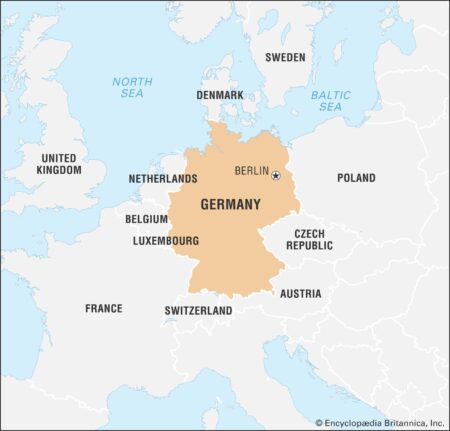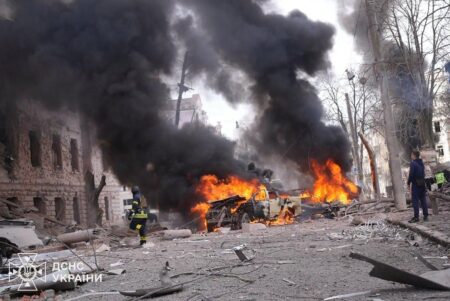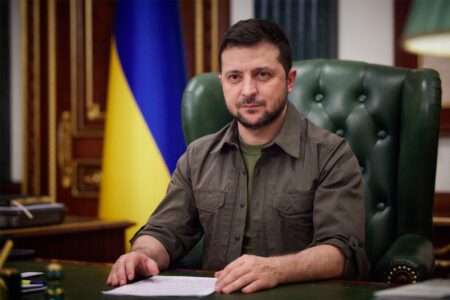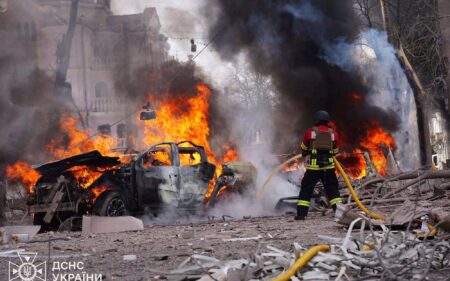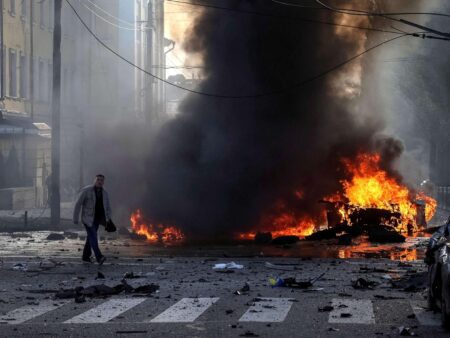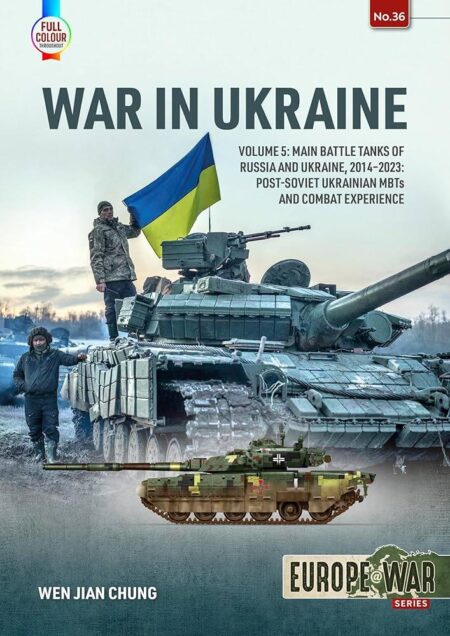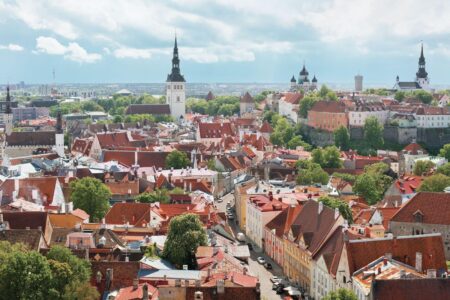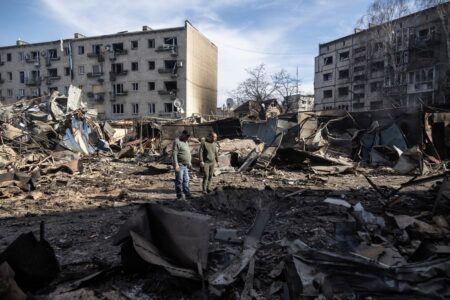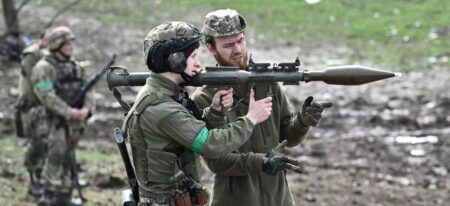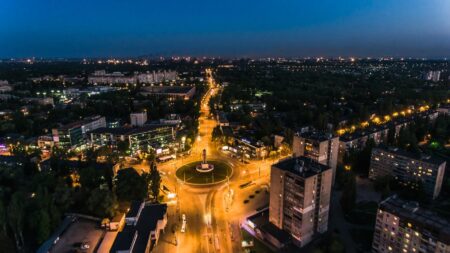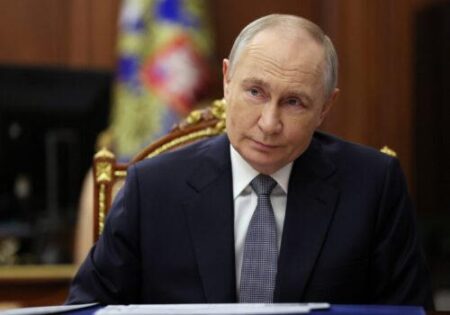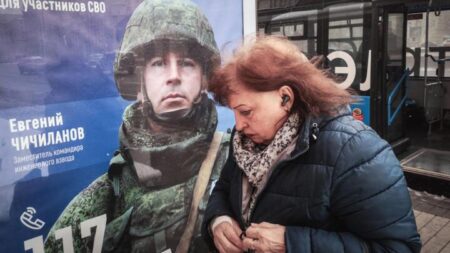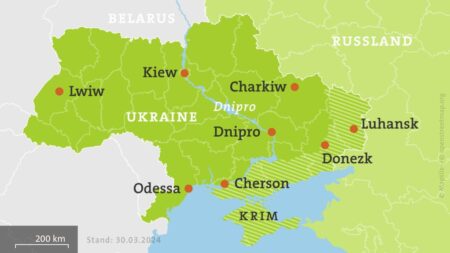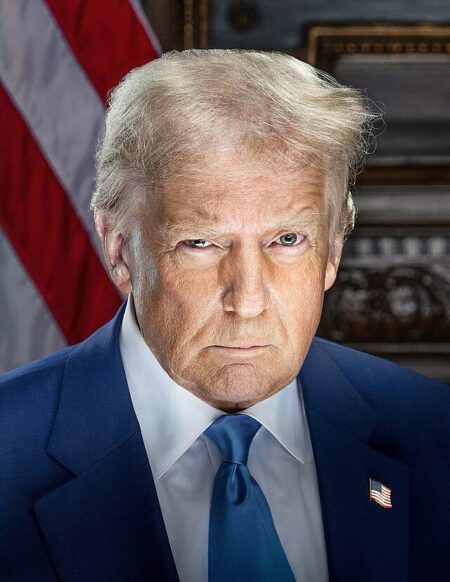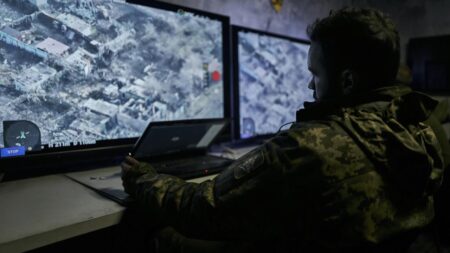The Kremlin warned that Germany’s potential shipment of Taurus missiles to Ukraine could lead to increased military tensions in the region. This statement reflects ongoing concerns about escalating conflicts as European nations reassess their support for Ukraine.
Browsing: Eastern Europe
Germany’s CDU leader, Friedrich Merz, condemned the recent attack on Sumy, labeling it a “war crime” by Russia. His statement reflects growing concern over escalating violence in Ukraine and calls for greater accountability on the international stage.
A brutal Russian attack on a Ukrainian city has left at least 31 people dead and 80 injured, according to NBC News. The strike has intensified fears over civilian safety as the conflict in Ukraine escalates amid ongoing hostilities.
Ukrainian President Volodymyr Zelensky has extended an invitation to former U.S. President Donald Trump to visit Ukraine, emphasizing the importance of U.S. support as diplomatic efforts to negotiate with Russia intensify.
A Russian missile strike on the Ukrainian city of Sumy has claimed the lives of over 30 individuals, officials confirmed. The attack highlights the ongoing escalation of violence in the region, further intensifying concerns over civilian safety and humanitarian crises.
In a recent statement, Ukrainian President Volodymyr Zelensky claimed that 155 Chinese nationals are fighting alongside Russian forces in the ongoing war. This revelation underscores the complex international dimensions of the conflict as Ukraine continues to resist Russia’s advances.
Russian strikes on the northeastern Ukrainian city of Sumy have resulted in the deaths of 32 civilians, marking the deadliest assault in 2023. Rescue efforts are underway as the region faces increasing violence amid ongoing conflict.
In a stark warning, the US envoy suggested that Ukraine risks a partition similar to post-World War II Berlin if the conflict escalates. The comments underline the urgent need for diplomatic solutions to avoid further fragmentation of the nation.
Ukrainian President Volodymyr Zelensky announced that intelligence agencies have identified 155 Chinese citizens fighting alongside Russian forces. This revelation raises concerns over foreign involvement in the ongoing conflict amid heightened geopolitical tensions.
Estonia has apprehended a Russian shadow tanker in the Baltic Sea amid heightened tensions in the region. The vessel, suspected of engaging in illegal fuel transfers, underscores ongoing concerns over maritime security and regulatory compliance.
Albania has received a naval ship from Italy, enhancing its military capabilities and supporting NATO operations. The move is part of ongoing efforts to strengthen regional security and foster collaboration among alliance members.
A Russian drone attack struck two Ukrainian cities, leaving at least 12 people injured, officials reported. The assault further escalates tensions in the ongoing conflict, as both sides continue to face significant casualties and destruction.
In a disturbing video released by AP News, four Ukrainian soldiers were reportedly executed by individuals identified as Russian forces. The footage has sparked international outrage and raised urgent calls for investigations into potential war crimes.
In Kryvy Rih, the hometown of Ukrainian President Volodymyr Zelensky, residents express heightened anxiety over potential Russian strikes. As tensions escalate, the community braces for the possibility of further military action, fearing for their safety and future.
Russia’s spring offensive has “effectively already begun,” according to General Oleksandr Syrskyi, as military activities escalate in key regions. Ukrainian forces remain vigilant amid increasing tensions, underscoring a critical phase in the ongoing conflict.
Documents obtained by The Kyiv Independent reveal that over 160 Chinese nationals are fighting alongside Russian forces in Ukraine. This surprising revelation raises questions about foreign involvement in the conflict and its implications for international relations.
China has officially denied claims that its citizens are fighting alongside Russian forces in Ukraine. The statement comes amid rising concerns over foreign involvement in the conflict, as international scrutiny intensifies on China’s stance in the war.
The question of whether former President Trump has red lines regarding Russia remains unresolved, leaving experts divided. As tensions rise, analysts are scrutinizing past statements and policies to gauge Trump’s potential responses to future provocations.
Former top Ukrainian commander Valerii Zaluzhnyi has confirmed the establishment of a joint U.S.-Ukrainian command center in Germany. This move aims to enhance military coordination and support for Ukraine amid ongoing tensions with Russia.
France has strongly condemned Russia’s indiscriminate strikes in Ukraine, expressing grave concern for civilian casualties. The French delegation at the United Nations reiterated calls for accountability and urged for an immediate cessation of hostilities.

![Kremlin says Germany risks ‚Äėescalation‚Äô if it sends Ukraine Taurus missiles [video] – TVP World Kremlin says Germany risks ‚Äėescalation‚Äô if it sends Ukraine Taurus missiles [video] – TVP World](https://www.mondialnews.com/wp-content/uploads/2025/04/22439-kremlin-says-germany-risks-escalation-if-it-sends-ukraine-taurus-missiles-video-tvp-world-450x450.jpg)
